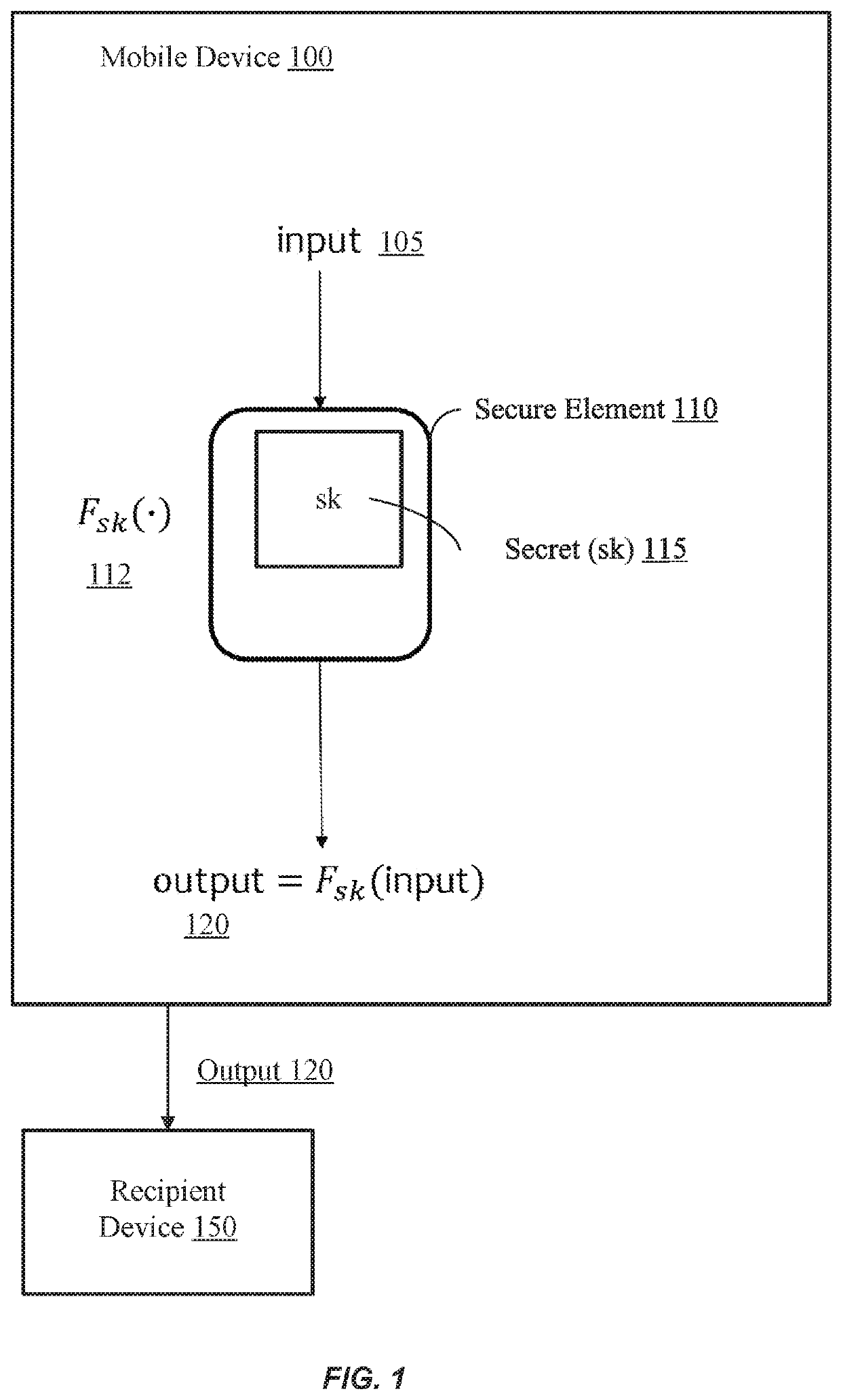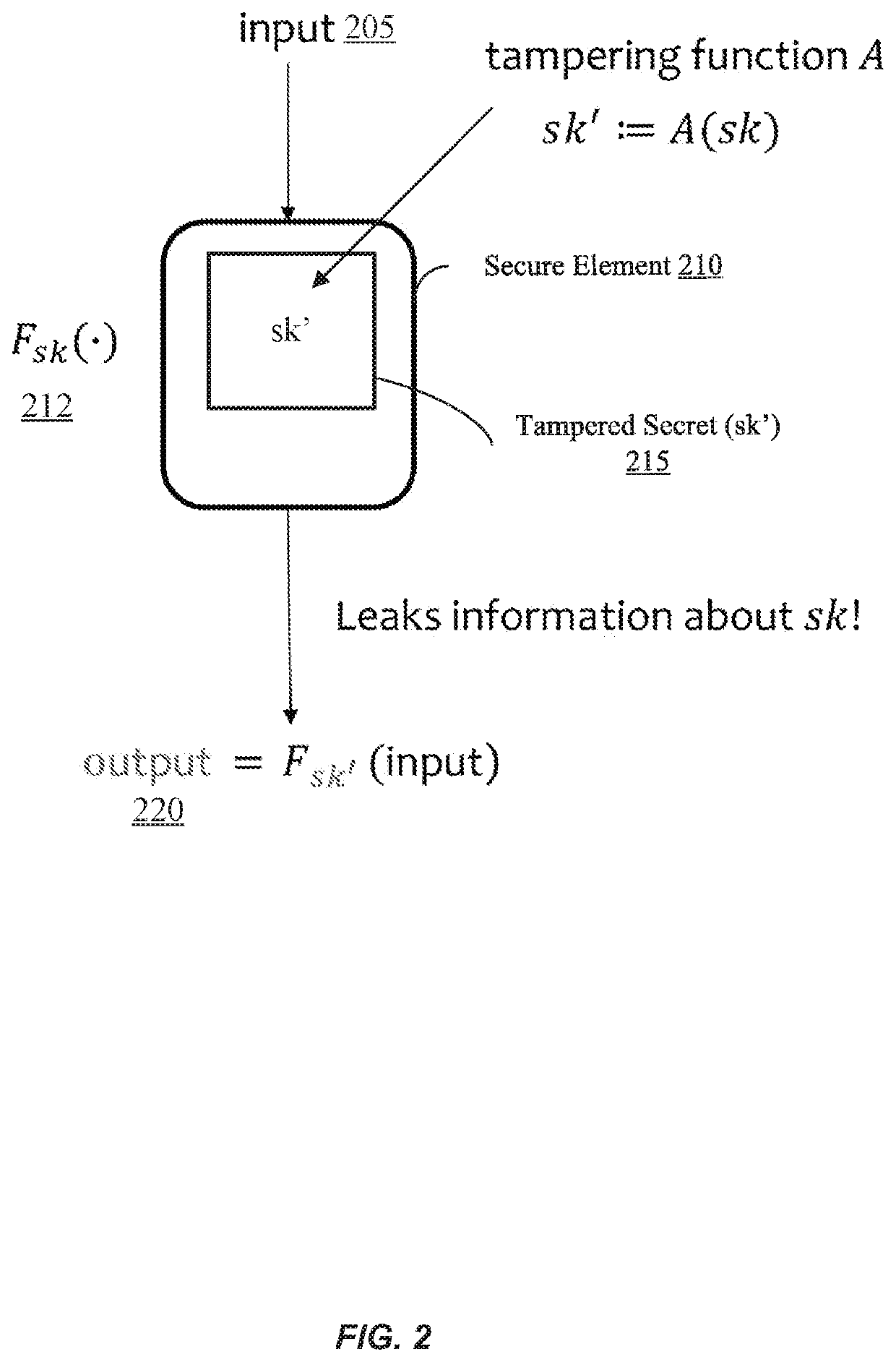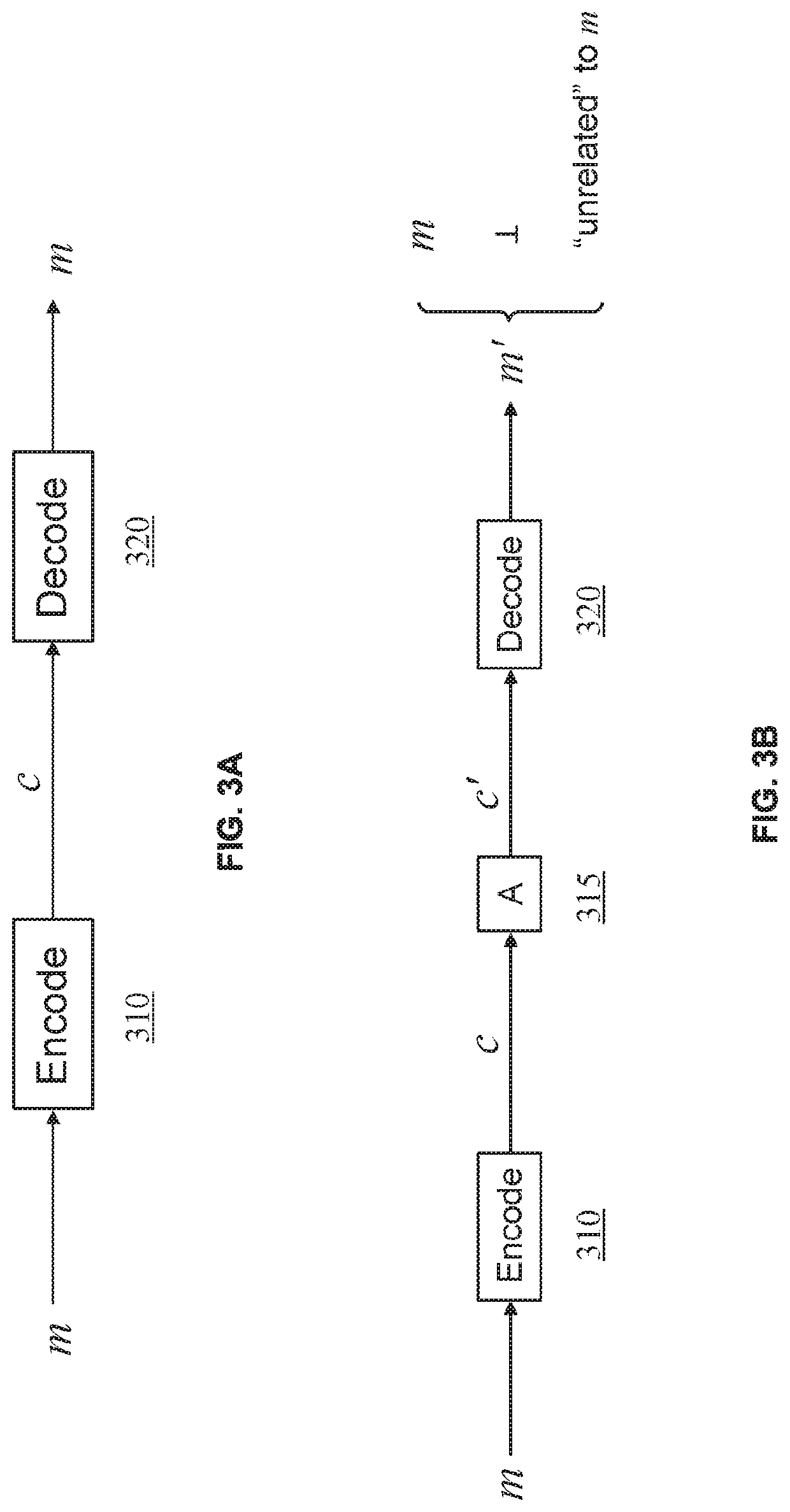Tamper-resistant data encoding for mobile devices
a mobile device and data encryption technology, applied in digital transmission, wireless communication, instruments, etc., can solve the problems of not addressing such malware, leaving open vulnerabilities, and tampering with “secure” memory, so as to reduce memory usage, reduce memory usage, and improve security
- Summary
- Abstract
- Description
- Claims
- Application Information
AI Technical Summary
Benefits of technology
Problems solved by technology
Method used
Image
Examples
Embodiment Construction
[0033]Embodiments describe using memory-hard functions and verifiable computation to achieve non-malleable codes, e.g., allowing error detection or always providing the same input data when a non-malleable code is detected. Further, the decoding can be practically implemented with today's mobile devices while the encoding cannot, thereby preventing the mobile device from generating a code that can be used to improperly authenticate a device.
[0034]To accomplish such non-malleable codes, a server may encode a message (m), e.g., a secret key (sk), to generate a code (y) (also referred to as ‘c’) and generate a proof value π that corresponds to a particular m / y pair (also referred to as a sk / c or m / c pair). The proof value π may be constant in size regardless of message size. Both the code and the proof value are then sent to a mobile device. To decode the message, the mobile device may be required to verify the proof value. For example, a decoding function can require the verification ...
PUM
 Login to View More
Login to View More Abstract
Description
Claims
Application Information
 Login to View More
Login to View More - R&D
- Intellectual Property
- Life Sciences
- Materials
- Tech Scout
- Unparalleled Data Quality
- Higher Quality Content
- 60% Fewer Hallucinations
Browse by: Latest US Patents, China's latest patents, Technical Efficacy Thesaurus, Application Domain, Technology Topic, Popular Technical Reports.
© 2025 PatSnap. All rights reserved.Legal|Privacy policy|Modern Slavery Act Transparency Statement|Sitemap|About US| Contact US: help@patsnap.com



